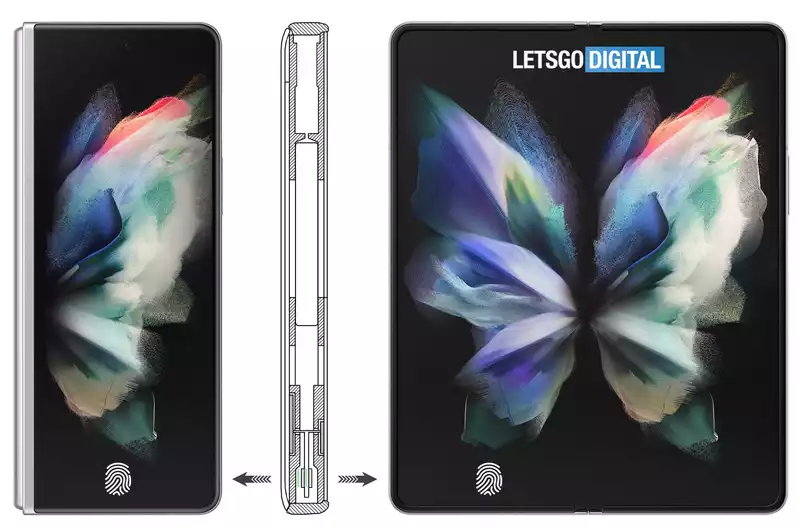Update: The Samsung Galaxy Z Fold 4 may fix the Fold 3's biggest drawback, the under-display camera.
With any luck, the Samsung Galaxy Z Fold 4 may feature a major upgrade in the form of an under-display fingerprint scanner. Samsung's patent envisions a double-sided fingerprint sensor used on both the outer and inner displays of the Galaxy Z Fold-style fold.
Such a sensor would be a departure from the side-mounted fingerprint scanner on Samsung's Galaxy Z Fold 3. While the Galaxy Z Fold 3's scanner is quite responsive, it is difficult to reach when using the foldable phone in tablet mode sometimes.
The patent was filed in March and has now been published, essentially detailing a scanner designed to fold alongside the next-generation Fold's foldable display. It features two sensors flanked by a circuit board, placed together between the foldable front cover display and the left side of the larger internal display. This two-sided design theoretically allows the same sensor to unlock the phone with a fingerprint whether the phone is open or closed.
LetsGoDigital noted that this is not the first time Samsung has applied for such a patent. It was also filed last April, proving that this is not a blanket statement on Samsung's part. It also gives us hope that Samsung may adopt this foldable scanner technology for the Galaxy Z Fold 4, rather than keeping it for a foldable device a few years down the road.
However, patents do not always translate into actual features in products, and even if they do, development can take much longer than a year or two. Therefore, the patent should be viewed with skepticism.
Given that the Galaxy Z Fold 3 has only been on the market for a little over a month, it will likely be some time before the Galaxy Z Fold 4 appears. However, the limited leaked information about the next generation foldable already makes for interesting reading. Expect to see a more affordable Galaxy Z Fold next year, with an improved under-display camera. These are two weaknesses of the current flagship Foldable, so these are very welcome changes.










Comments